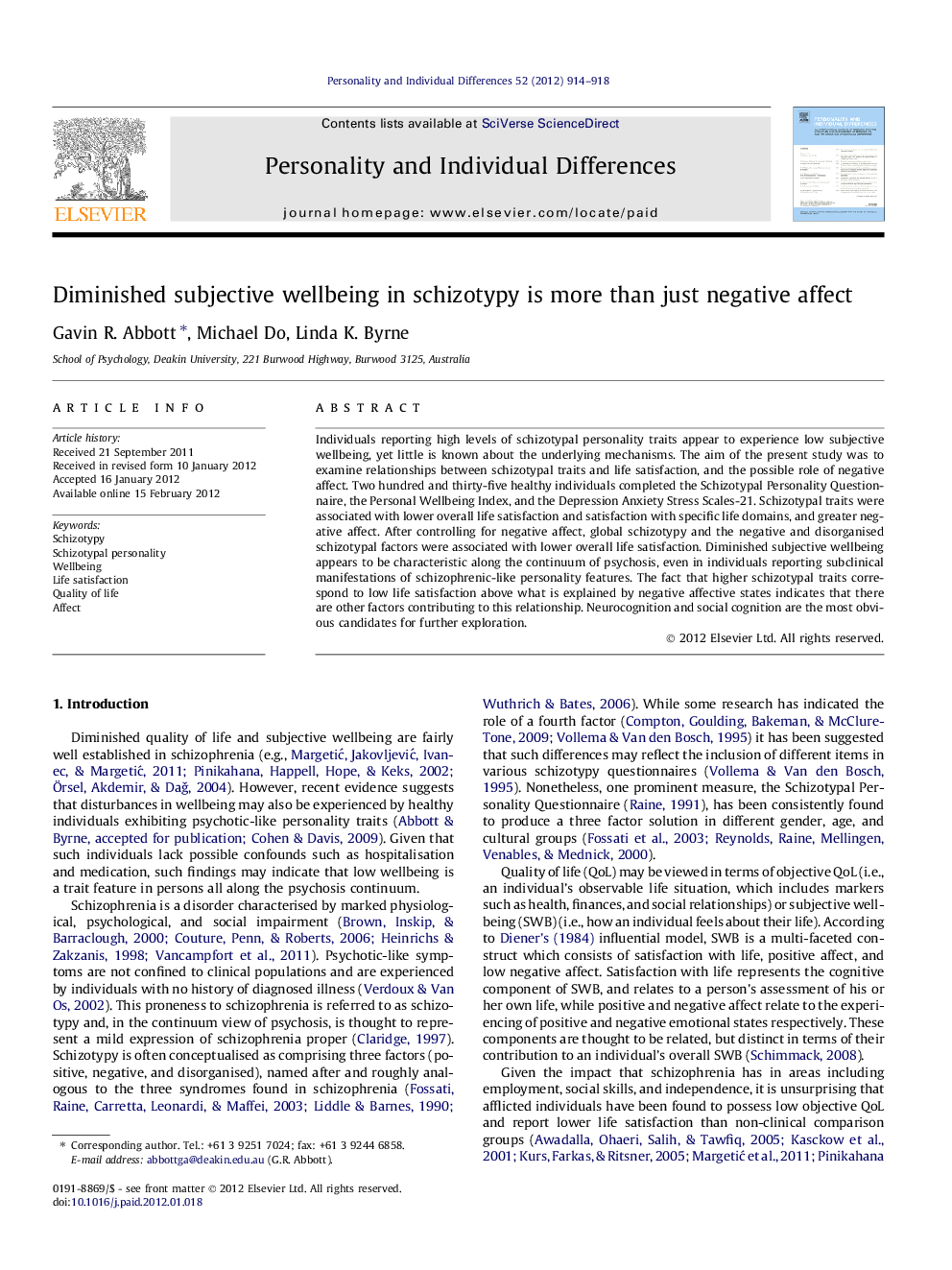| Article ID | Journal | Published Year | Pages | File Type |
|---|---|---|---|---|
| 891408 | Personality and Individual Differences | 2012 | 5 Pages |
Individuals reporting high levels of schizotypal personality traits appear to experience low subjective wellbeing, yet little is known about the underlying mechanisms. The aim of the present study was to examine relationships between schizotypal traits and life satisfaction, and the possible role of negative affect. Two hundred and thirty-five healthy individuals completed the Schizotypal Personality Questionnaire, the Personal Wellbeing Index, and the Depression Anxiety Stress Scales-21. Schizotypal traits were associated with lower overall life satisfaction and satisfaction with specific life domains, and greater negative affect. After controlling for negative affect, global schizotypy and the negative and disorganised schizotypal factors were associated with lower overall life satisfaction. Diminished subjective wellbeing appears to be characteristic along the continuum of psychosis, even in individuals reporting subclinical manifestations of schizophrenic-like personality features. The fact that higher schizotypal traits correspond to low life satisfaction above what is explained by negative affective states indicates that there are other factors contributing to this relationship. Neurocognition and social cognition are the most obvious candidates for further exploration.
► We examine associations between schizotypy and subjective wellbeing. ► Schizotypy relates to lower life satisfaction and higher negative affect. ► Lower life satisfaction in schizotypy is not due to negative affect.
